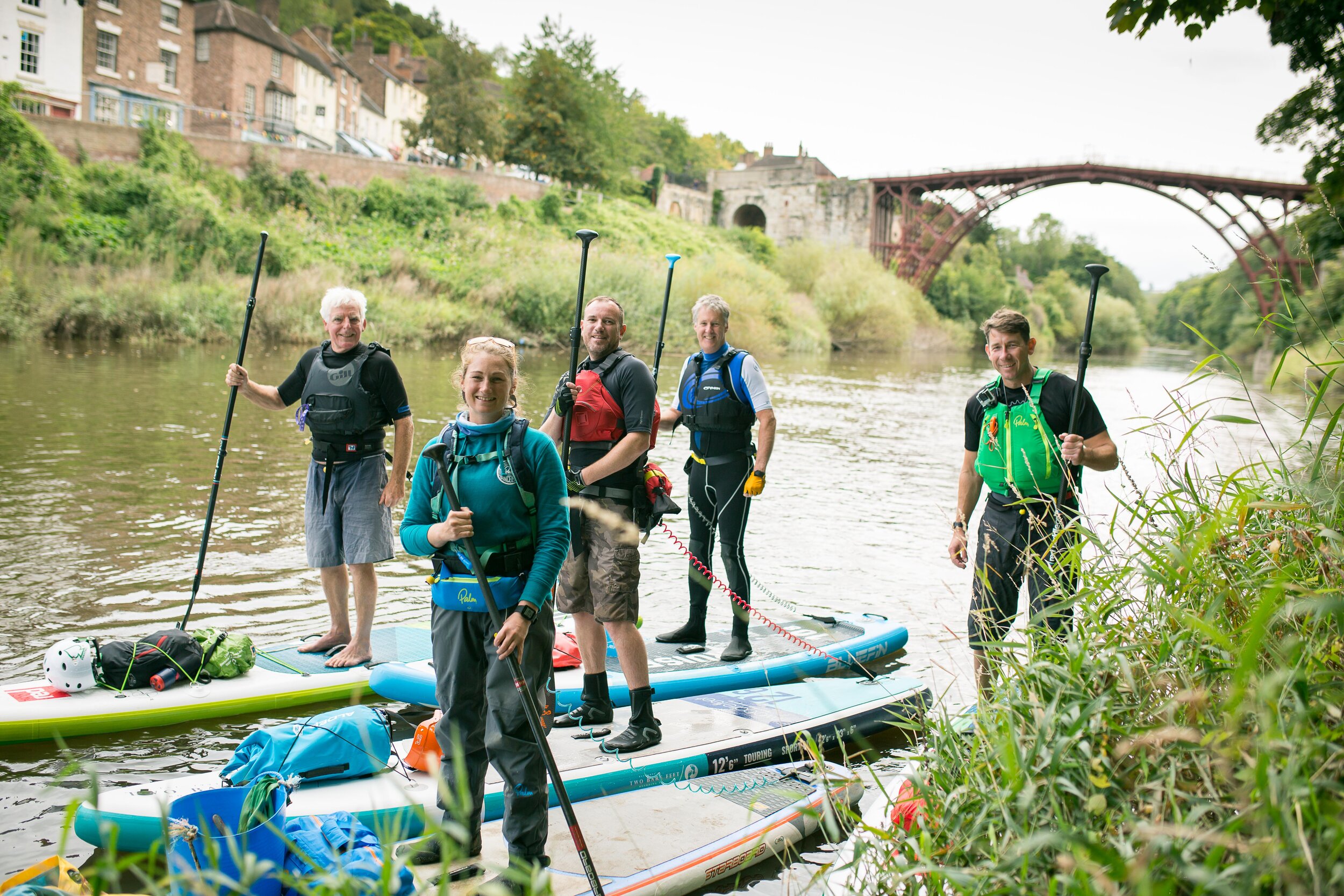It’s hard to believe that the UK’s longest river begins as a single post and a trickle of water in the Welsh Hills. From this trickle, however, the River Severn’s beauty, majesty and power very quickly become clear. Steep, fast flowing waterfalls carving through the Hafren forest, alive with wildflowers, pine trees and insects.
I had never really spent much time in or around rivers, but was aware of their importance in the context of marine litter. Plastic on our beaches isn’t just stuff that’s been thrown away in that coastal environment. A great deal of it originates in land where, if improperly disposed of, it can find its way into our rivers and out to sea - I wanted to follow this journey on the River Severn, which at 354km, flows through Powys, Shropshire, Worcestershire and Gloucestershire before emptying into the Bristol Channel.
Having seen just a glimpse of the beauty that was to come in the Hafren forest, I was grinning with excitement to get onto the water as I drove to Crew Green on the Welsh/English border, the first navigable point on SUP. And I wasn't disappointed. My first 20km that evening in the setting sun was glorious, stopping along the way to pull plastic sheeting out of the trees lining the river. Most of the sheeting was plastic that would have been used to wrap bales of hay and silage.
The second day of paddling was even more beautiful, and it’s then I began to appreciate how special this river is. She changed every few miles, from winding oxbows, narrow and faster flowing, to wide long straight sections, sided by enormous trees. The pace of life slowed down as I became increasingly aware of the sound of the wind in the trees, or the chorus of birds settling into them for the night. I felt like I was in a nature documentary, miles from civilisation!
I also began to see a very special bird - the Kingfisher. I’ve never seen one in the flesh before, and almost fell off my board the first time I did! Tiny and so fast, darting across the river in front of me, a flash of metallic blue preceded by a high pitched shriek. I also paddled past herons, buzzards watching over the river from their treetops, and several species of ducks. I was in awe of this place, in love with the amount of wildlife I was amongst, and the energy that the flowing water and ecosystem exuded. This wasn't just a connection to the ocean, but an important and beautiful place in its own right, home to so many animals and capable of inspiring awe and wonder. I paddled 46km that day, mostly with a smile on my face.
The river continued to wend its way towards the sea, and I was soon in the town of Shrewsbury. Instantly I felt my smile falter. I became conscious of onlookers and aware that I was definitely no longer alone with nature, but enclosed by tall walls protecting the town and our important lives from this body of water. No more kingfishers or herons, but plenty of plastic bottles as I paddled through the canalised river.
As I approached Stourport, I was hit by the first sense that something was really wrong. An enormous boat with just a handful of passengers on chugging up and down the river on a sightseeing tour, clouds of smoke left in its wake; enormous yachts and speed boats buzzing up and down the river; loud, noisy, polluting. And no birds to be seen. The banks of the river were increasingly concreted, taming her and stopping the naturally ever changing banks. Then the first of several locks on the river, constructed for ease of boat passage up and down this once wild place. The water’s flow was impeded by enormous concrete structures and gates, and the feeling was no longer of a complete and precious ecosystem but a boat motorway, a resource for us to extract from and use and take. It feels like a very difficult thing to write about because I really don’t wish to shame anybody’s individual choices, and am grateful that there are ways for all of us to enjoy the water. This is by no means an attack on the individuals or groups using the river in this way, more an observation of how disconnected we are from the value of a river, or any other ecosystem for that matter, as something more than just an economically or hedonistically useful place. I came into this journey to look at how plastic enters the ocean where it can cause harm, and yet I’d overlooked how important our rivers are in their own right. I’d been so touched by the utter beauty and peace and wildness upstream that I felt a real grief for where all of this was being destroyed at our hands.
This isn't just crucial from an enjoyment point of view either. We’ve all heard about the crises facing our planet - climate change, pollution and biodiversity loss. Wildlife and wild places are not just crucial because they are pretty or nice to be around, they are the linchpin of our survival on this planet. The loss of wild plants and animals is not just tragic, but creates a world which is incredibly vulnerable to rising temperatures and increasingly uninhabitable by those of us who are left on it.
So what can we do about this? How do we protect wild places and ensure that these important ecosystems are left in tact for wildlife to thrive?
I think we need a mass reconnection to our natural world and what it means to be a part of it. Before this trip I never had my own personal connection to rivers. Just a few days into being on this river and already I became aware and outraged at the damage we are causing it. I strongly believe that a personal connection to our wild places is the only way we can expect people to care about them. Whether or not you’re spiritual, whether you think there are bigger forces at work, or even if it’s just a recognition that being somewhere wild makes you feel amazing, improves your mental health and tops up your nature batteries, we need to address the disconnect in our society so that protecting nature is fundamentally more embedded in our values and at the forefront of our thinking.
Because without wild places we won't have a planet to live on, and I personally feel it wouldn’t be a planet worth living on.
My journey finished with a couple of days paddling down the tidal section of the Severn, from Gloucester to Sharpness. It was so incredible to be back onto moving water beyond the city, with its shifting sand banks and deep, unforgiving mud. It felt like an adventure once more - I was mesmerised by the different paths the river took at different states of the tide, and upon approaching Sharpness enjoyed the standing waves and mini whirlpools cause by such massive amounts of water flooding in and out of the channel. This place felt alive again.
Just 1% of rivers in Europe are still free-flowing. The rest have been dammed, canalised, and devastatingly altered. We need rivers. We need them untouched to act as the important ecosystems they truly are. Great organisations doing this are Save Our Rivers and the Rivers Trust - please support their work and learn from their passion and expertise.
Watch the video of Cal’s expedition below, or learn more on her website







